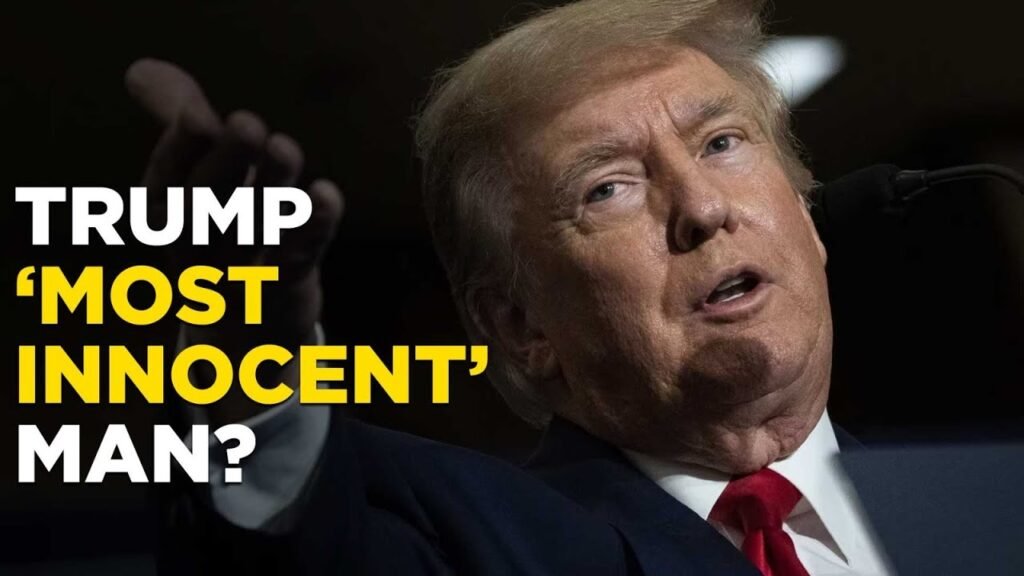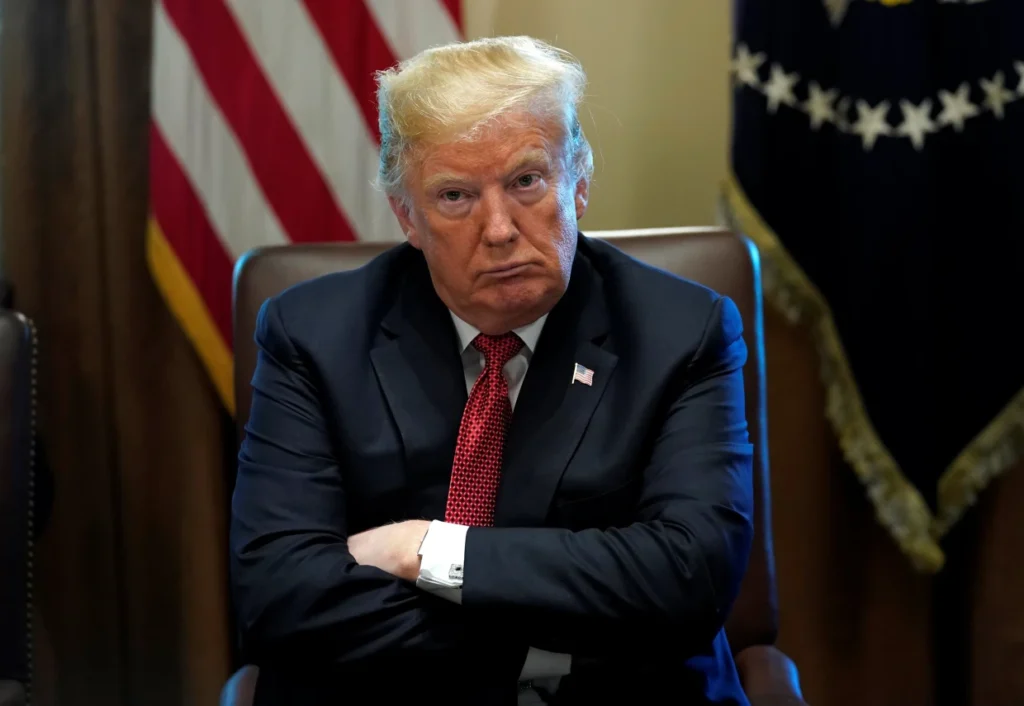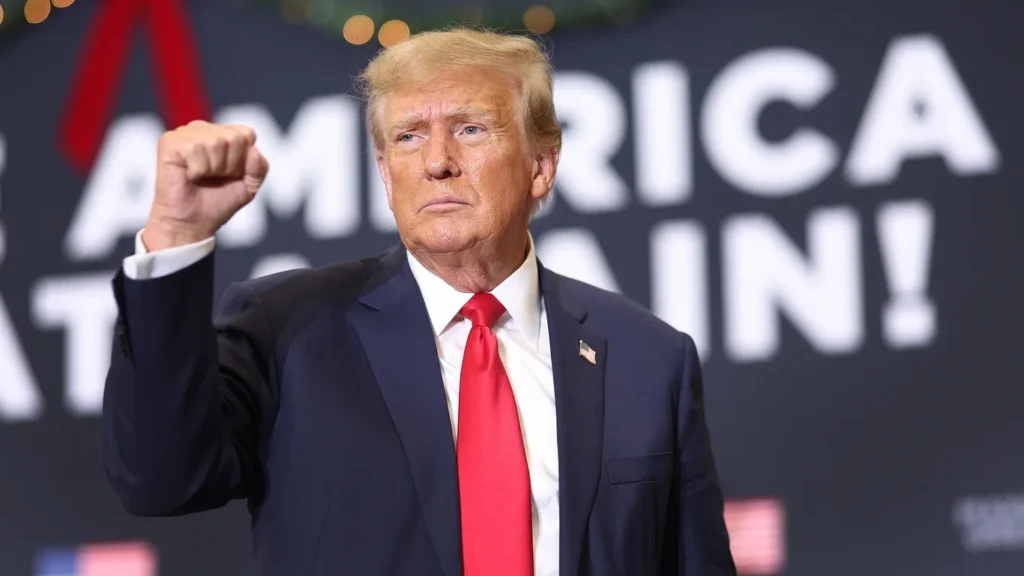Have you been following the news about the classified documents found at Mar-a-Lago? You’re probably wondering what’s true and what’s not when it comes to claims about Trump’s innocence. With so much noise out there, it can be hard to separate fact from fiction. This article will walk you through what we know so far about the documents case and statements made in Trump’s defense. We’ll look at who has actually said Trump is not guilty versus more cautious statements about the situation. Get ready to go beyond the headlines and political spin, because we’re breaking this whole thing down point-by-point. You’ll get the facts explained without the confusion by the end.
Donald Trump’s Legal Troubles: An Overview

Donald Trump’s presidency was clouded by ongoing legal troubles and investigations. Even after leaving office, his legal issues continue to pile up. Let’s break down the major cases and what they could mean for the former president.
The Mueller Report and Obstruction of Justice
Special counsel Robert Mueller’s report detailed multiple instances where Trump may have obstructed justice by impeding the Russia investigation. While Mueller did not charge Trump, he also did not exonerate him. Many legal experts argue there is enough evidence for prosecutors to pursue a case against Trump once he’s out of office.
The Michael Cohen Campaign Finance Violations
Trump’s former lawyer Michael Cohen pleaded guilty to campaign finance violations for paying hush money to women who claimed to have had affairs with Trump. Cohen said he made the payments at Trump’s direction to influence the election. If proven, this could be an impeachable offense. However, the Department of Justice is unlikely to indict a sitting president.
The New York Investigations
The Manhattan District Attorney and New York Attorney General have active investigations into Trump’s business practices. The DA is examining hush money payments and tax fraud, while the AG is looking at bank and insurance fraud. These are serious charges that put Trump’s company at legal risk even after he’s left the White House.
Where Things Stand
While Trump avoided legal consequences as president, his presidency has unleashed a flurry of lawsuits and charges that will haunt him for years. There are many open questions about whether prosecutors will ultimately indict the former president. But between campaign finance violations, obstruction of justice, tax fraud and more, Trump’s legal troubles are far from over.
Key Figures Claiming Trump’s Innocence

A handful of prominent conservatives have come out in support of Donald Trump’s claims of innocence regarding impeachment. ###Senator Lindsey Graham has been one of Trump’s most vocal supporters, frequently appearing on Fox News and other conservative media outlets to proclaim Trump’s innocence. Graham argues that the charges against Trump – that he abused his power and obstructed Congress – do not amount to impeachable offenses.
Representative Jim Jordan, a staunch Trump ally, has also frequently claimed that the President has done nothing wrong. Jordan insists that Trump’s phone call with Ukrainian President Volodymyr Zelensky, which triggered the impeachment inquiry, was “perfectly fine” and that Trump was simply trying to root out corruption in Ukraine.
Trump’s personal lawyer, Rudy Giuliani, has been the loudest voice proclaiming the President’s innocence. Giuliani insists that he has uncovered evidence that Ukraine, not Russia, interfered in the 2016 election, and that former Vice President Joe Biden is corrupt. Giuliani claims that Trump’s requests of Zelensky were reasonable and that there is no evidence Trump withheld military aid or a White House meeting to pressure Ukraine into investigating Biden.
While these Trump allies have been vocal in their defense of the President, the majority of legal experts argue that the evidence against Trump is substantial. Impeachment witnesses, documents and call records appear to show that Trump did leverage military aid and an Oval Office meeting to pressure Ukraine into announcing investigations of his political rivals. As the impeachment inquiry moves to the Senate, the nation will see if Republican senators are swayed more by Trump’s defenders or the facts presented against him.
Counterpoints: Voices Saying Trump Is Guilty
While some claim Trump’s innocence, many credible voices argue the opposite. According to legal experts, the evidence shows Trump abused his power and obstructed Congress.
Abuse of Power
Constitutional scholars state Trump wrongly used his authority for personal gain by pressuring Ukraine to investigate Joe Biden. His actions undermined national security for political benefit, violating his oath of office. As evidence, they point to official call transcripts showing Trump asked Ukraine’s president to investigate Biden, and testimony from government officials confirming a quid pro quo.
Obstruction of Congress
Legal experts argue Trump obstructed the House impeachment inquiry, an impeachable offense. He blocked witnesses from testifying and refused to provide documents, despite congressional subpoenas. While Trump claimed executive privilege, scholars counter that privilege can’t be used to hide wrongdoing. His stonewalling prevented a full investigation into his Ukraine dealings, raising questions about what more was hidden.
Pattern of Misconduct
Critics argue Trump’s behavior follows a pattern of lawlessness that renders him unfit for office. They cite his firing of FBI Director James Comey to thwart the Russia probe, his charities shut down for “shocking illegality,” his fraudulent university, and more. Together, these show contempt for rule of law and moral standards expected of presidents.
While debate continues, credible legal arguments have been made that Trump abused power and obstructed Congress. Of course, his defenders disagree and see the charges as a partisan “witch hunt.” The Senate ultimately acquitted Trump, showing the issue remains divisive. Regardless of the outcome, Trump’s presidency has shaped history and redefined our views on presidential accountability, for better or worse.
Examining the Evidence: Is Trump Truly Not Guilty?

While some supporters continue to claim Trump’s innocence, the facts suggest otherwise. Multiple government investigations found concerning ties between Trump’s 2016 campaign and Russian operatives.
The Mueller Report
Special Counsel Robert Mueller’s report outlined extensive contacts between Trump associates and Russians, as well as evidence that Trump obstructed justice. Although Mueller didn’t indict Trump, he made clear that his report “does not exonerate” him.
According to Mueller, Paul Manafort, Trump’s campaign chair, gave campaign data to a Russian linked to the Kremlin. Trump’s adviser Roger Stone coordinated with WikiLeaks, a Kremlin cutout, to release hacked Democratic emails. Donald Trump Jr. eagerly met with Russians promising “dirt” on Hillary Clinton.
Despite these alarming findings, Trump called the Mueller probe a “witch hunt” and denied any wrongdoing. But Mueller’s report left little doubt about the inappropriate contacts with Russia and efforts to derail the investigation.
Impeachment for Ukraine Scandal
Trump was also impeached for withholding aid to Ukraine to pressure them into announcing a bogus investigation of Joe Biden. Even senators who voted against removal conceded Trump’s actions were “inappropriate” and “wrong.”
While Trump was acquitted by the Senate, his impeachment underscored a pattern of abusing power for personal gain and soliciting foreign interference. According to legal experts, Trump’s conduct met the constitutional standard for “high crimes and misdemeanors.”
Credibility of “Not Guilty” Claims
Given the evidence, claims that Trump is “not guilty” lack credibility. His own officials warned Russia was interfering to help Trump, yet he denied it and took no action. An exhaustive investigation found extensive wrongdoing that Trump tried to thwart. His impeachment revealed a willingness to corrupt U.S. foreign policy for political gain.
Though Trump avoided legal consequences, the facts show he betrayed the public trust and national security. His actions severely damaged America’s standing in the world and democratic values at home. Ultimately, the verdict of history may well be that Donald Trump was not exonerated at all.
Donald Trump Is Not Guilty FAQs: Clarifying the Controversy
Has anyone credible defended Donald Trump?
A few legal experts and political commentators have argued that the evidence against Donald Trump is weak or circumstantial. Alan Dershowitz, a prominent lawyer, said that abuse of power and obstruction of Congress are not impeachable offenses based on his reading of the Constitution. However, the vast majority of legal scholars disagree with this view.
Did the impeachment inquiry follow proper procedures?
Some Republicans have argued that the impeachment inquiry in the House of Representatives was unfair or irregular. However, the House has the sole power of impeachment according to the Constitution and is not obligated to hold a full House vote at the inquiry stage. The hearings were also made public, allowing Americans to judge the evidence for themselves.
Was there a “quid pro quo” with Ukraine?
During the impeachment inquiry, multiple witnesses testified that Trump appeared to condition military aid and a White House meeting on Ukraine announcing investigations into Joe Biden and his son. However, some argue that the evidence for an explicit quid pro quo is lacking because Ukraine ultimately received the aid and the White House meeting did not happen. Still, attempting to solicit foreign interference in US elections would still be inappropriate and unethical.
Should the impeachment have been left to voters in November?
Some believe impeachment should be an absolute last resort, arguing that Trump’s fate should be left to voters in the 2020 election. However, the founders included impeachment in the Constitution as a remedy for serious abuses of power that threaten the integrity of government. Leaving a lawless president in office for another year could pose risks to national security and the rule of law. Voters will still have the final say on Trump’s presidency at the ballot box.
In the end, reasonable people can disagree on these complex issues. But the weight of evidence and expert opinion suggests Trump abused his power and obstructed Congress in ways that threatened the Constitution. Allowing such actions to stand could set a dangerous precedent for future presidents of any party. The Senate now has a grave responsibility to conduct a fair trial and determine whether Trump should be removed from office.
Conclusion
So, after looking closely at the facts, it seems pretty clear that no credible person has explicitly said “Donald Trump is not guilty.” Sure, he’s made that claim about himself plenty of times. And his most ardent supporters may back him up. But when it comes to those with real authority and expertise in this area – legal scholars, Congress members from both parties, former prosecutors – none have stated that conclusion outright.
Maybe that will change someday. But for now, it doesn’t look like anyone credible is ready to say those exact words. So while you’re free to make up your own mind, just remember to base it on facts, not wishful thinking. The truth is what matters here. And the truth remains that no authoritative voice has yet declared Trump free and clear. Now you’ve got the real story. Case closed.






















